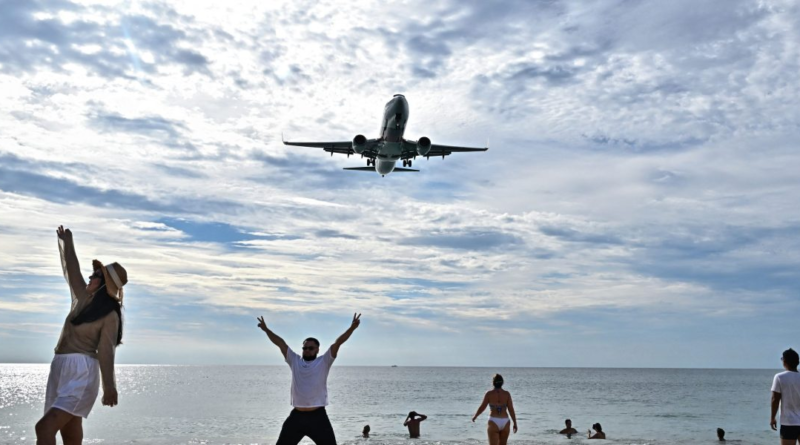China’s global travel rebound didn’t happen in 2023. But analysts still predict ‘out of the park’ growth in outbound travel this year
On Jan. 8, 2023—almost a year ago—Beijing ended one of its toughest COVID-zero measures: its system of mandatory quarantine for international arrivals. After years of closed borders, those entering China, including Chinese citizens who had to travel overseas, no longer needed to spend days in isolation. It was an exciting development for many outside the country as well, with tourist destinations around the world preparing for a wave of Chinese visitors, ready to travel and spend after years of being stuck at home.
But while outbound travel in much of the rest of the world largely returned to pre-pandemic levels in 2023, one segment of the travel economy is still missing: Chinese tourists. The hoped-for rebound failed to materialize, as Chinese tourists pivoted to domestic tourism instead of overseas travel.
That’s a challenge for many destinations in Southeast Asia, which before the pandemic relied on Chinese spending to grow their tourist sectors. Just this week, Thailand permanently waived visa requirements for Chinese travelers. “This will upgrade the relationship between the two countries,” Thailand Prime Minister Srettha Thavisin said at the time. (China is waiving visa requirements for Thai visitors as well, as Beijing also tries to boost inbound tourism.)
Chinese outbound travel surged in 2023, but it’s still lagging the massive outflow before COVID. In 2019, Chinese tourists made a whopping 155 million outbound trips. Official data for the first half of last year reports 40 million trips, and while the full-year figure will be larger, it’s still likely to be lower than what was reported before the pandemic.
Yet travel analysts are hopeful that Chinese citizens will start traveling more internationally this year.
“If you see around the world, probably Chinese outbound travel is the only missing phase,” said Parash Jain, head of transport research for Asia-Pacific at HSBC.
While a China-led rebound for Southeast Asia’s tourism sector didn’t materialize last year, 2024 could finally prove analysts correct, thanks to more flights, relaxed visa regulations, and the receding effects of the COVID pandemic.
Despite “a lot of pessimism about China’s outbound travel,” Jain still predicts that year-on-year growth in outbound travel will be “out of the park.” He doesn’t think that China’s slowing economy will diminish the appetite for travel overseas. Rather, Chinese tourists will opt for destinations closer to home. “Instead of going to Miami, if I want to save something I will go to Bali. If not Bali, I’ll probably go to Thailand,” he suggests.
Where are Chinese tourists traveling to?
Pre-pandemic, Chinese tourists were commonly the biggest group of visitors and spenders for many Southeast Asian countries. Yet COVID halted outbound travel owing to strict border measures that included lengthy quarantines for Chinese residents returning to the mainland.
China ended its quarantine requirements on Jan. 8, 2023, yet Chinese tourists didn’t immediately go on long-delayed international trips.
Thailand’s tourism-reliant economy attracted just over 11 million Chinese tourists in 2019 accounting for about 27% of the total tourist arrivals that year. Thailand collected about $15.39 billion from Chinese tourists that year, which also made up about 27% of the total income from all international arrivals. Contrast that with 2023, when Thailand received only 3.09 million Chinese tourists, way below the government’s early target of 5 million.
In Singapore, the chairman of the Orchard Road Business Association, an organization that looks after the interests of businesses on the city-state’s premier shopping belt, told Nikkei Asia the return of Chinese tourists—in his view, “still the top spinner” of sales—has been slow.
Jain thinks the sluggish travel revival was in part the result of China’s massive exit wave of COVID cases in late 2022 and early 2023. “China’s economy had reopened, but there was a wave of COVID,” he says. “It was not a full-fledged reopening, per se.”
Analysts also point to limited flight connections and post-COVID visa backlogs as factors contributing to the delay in outbound travel. During the pandemic, China restricted international flights with its “five one” policy, which allowed foreign carriers to fly just one air route to China once a week. Chinese carriers also had to similarly cut down on international routes. Restoring flight capacity takes time, as carriers coordinate crew, get planes back from storage, and wrangle with governments.
And China’s economic struggles probably won’t last forever. “Consumption sentiment is picking up,” boosting outbound travel in 2024, says Ying Zhang, a China research analyst for the Economist Intelligence Unit. Health and COVID concerns among Chinese tourists also receded throughout 2023, which may encourage more to consider overseas holidays this year.
Asian countries like Japan, Thailand, South Korea, Malaysia, and Singapore dominated the list of popular destinations for Chinese tourists over the New Year’s holiday, according to travel company Trip.com. Outbound bookings are up by 388% year on year, according to Boon Sian Chai, the company’s managing director and vice president of international markets.
China, too, is trying to get its international aviation sector back online again, and that also could help boost outbound travel. On Thursday, the country’s aviation regulator said it expects to see 6,000 international flights a week by the end of 2024. That’s about 80% of pre-pandemic levels.




